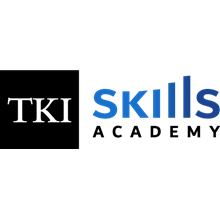Certificate in Influential communication skills (In-house Course)
Training by
TKI Skills Academy
Inquire Now
On-Site
/ Training
Details
Certificate in Influential communication skills
(In-house Course)
Learning objectives
(In-house Course)
Learning objectives
- Utilize communication tools and skills for better understanding;
- Discover different personal communication styles;
- Understand and harness the power of body language;
- Practice and use assertiveness skills in different situations;
- Unlock the secrets of influence for effective communication;
- Understand Elements of Communication;
- Managing Criticism Assertively;
- How to say “no” assertively;
- Provide feedback effectively.
- Creative and critical thinking
- Self-confidence, self-efficacy, and self-expression
- Conflict management
Outline
Session 1
- Introduction to Communication
- Importance of Good Communication
- Explain the three communication approaches
- Proactive communication (leading initiatives)
- Active communication (purpose driven and based)
- Reactive communication (respond to actions)
- Discuss the impact of good communication on business results
- The essential communication elements
- Message (Clarity, focus, time)
- Mean (written, spoken, email)
- Feedback (cause and effect)
- Language (level, proficiency, and types (British/ American)
- Tackling communication interferences in relation to:
- Personal interferences (psychological and physical)
- Contextual interferences (work environment, manager, colleagues, technology)
- Tackling interferences for optimal communication
- Self-assessment and practice
- Assessing your communication recipients in term of:
- Their motivation to know your message/topic
- Their feelings about the message/topic
- Their urgency to know the message
- Their level of experience and knowledge
- Their demographic features (age, tenure, education, experience)
- Explore common barriers to effective communication
- Poor expressive speaking
- Poor empathetic listening
- Poor sensitivity to other's feelings
- Poor information management
- Poor thoughts reflection
- Cross-cultural perceptions and biases
- Self-assessment and practice
- Defining culture
- The impact of culture on message and communication
- Hofstede cultural dimensions in relation to communication
- Individualism / collectivism
- Power distance
- Uncertainty avoidance
- Muscularity / Femininity
- Managing cultural perceptions and biases in term of:
- Perceiving others equally
- Listening to others with importance
- Base communication on purpose rather than perception
- Selecting culturally neutral words and expressions
- Using body language sensitively
- Self-assessment and practice
- Understanding Communication Styles
- Hearing versus Listening
- Meaning of both concepts
- Impact of both concepts on communication effectiveness
- Types of Listening in the workplace
- Pseudo-listening type
- Active listening type
- Differences and implications of both listening types on communication
- Common listening challenges
- Personal related
- Work-related
- Environment-related
- Self-assessment and practice
- Asking the Right Question
- Open questions
- Closed questions
- Leading question
- Probing question
- Identifying main communication styles and behaviours
- Passive based
- Aggressive based
- Assertive based
- Implications of each style and behaviour
- Impact of these styles and behaviours on communication effectiveness:
- Message design
- Message meaning and impact
- Results and sought action
- Self assessment and practice
- Explore verbal communication in term of:
- Choice of words and expressions
- Attitude of the communicator
- Purpose of the communication
- Non-Verbal communication impact in term of:
- Body language
- Facial expressions
- Dress code
- Qualities of a Good Voice
- Clarity
- Confidence
- Introducing conflict management within communication context
- Dealing with difficult People and complaints
- Managing communication's misconceptions
- Mastering Kilmann's five communication conflict management strategies in communication
- Avoidance (Uncooperative and unassertive)
- Accommodation (Cooperative and unassertive)
- Competing (Uncooperative and assertive)
- Collaborating (Cooperative and assertive)
- Compromising (Middle ground)
- Emotion management and its implications on the message and it meaning
- Self assessment and practice
- Learning how to be assertive in communication
- Learning how to Say No
- Reasons for shying-away from saying NO
- Saying No in a positive attitude
- The Value of Feedback
- Positive and Negative Feedback
- Give feedback in a “feedback sandwich”
- Criteria for developmental feedback
- Giving Constructive Criticism in term of:
- Clear purpose
- Timely fashion
- Emotionally managed
- Dealing with Negative Criticism
- Self assessment and practice
- Certificate of Attendance: after participating at the 2 days of on-site training course;
- Certificate in Influential Communication Skills: after you have successfully completed all of the 3 stages of the learning experience.
Special Offer
Organize this training course in-house
If you have a group of five or more to train you can save time and money by running this training course in-house. Use the contact details provided to request a customized offer from one of our training solution specialists.
Call us and we will assist you through the registration process.
If you have a group of five or more to train you can save time and money by running this training course in-house. Use the contact details provided to request a customized offer from one of our training solution specialists.
Call us and we will assist you through the registration process.
Reviews
Be the first to write a review about this course.
Write a Review
TKI Skills Academy offers progressive training programs focused on enhancing personal and professional growth. Our courses, developed at global standards, are adapted to the market’s needs and professionals’ experiential learning expectations.
We created the Academy to help organizations reach peak performance through better-skilled professionals operating more mature organisational capabilities. Skills and overall business acumen such as effective communication, data analysis, emotional intelligence, risk management, and innovationare a proven ingredients of professional and organisational success.


